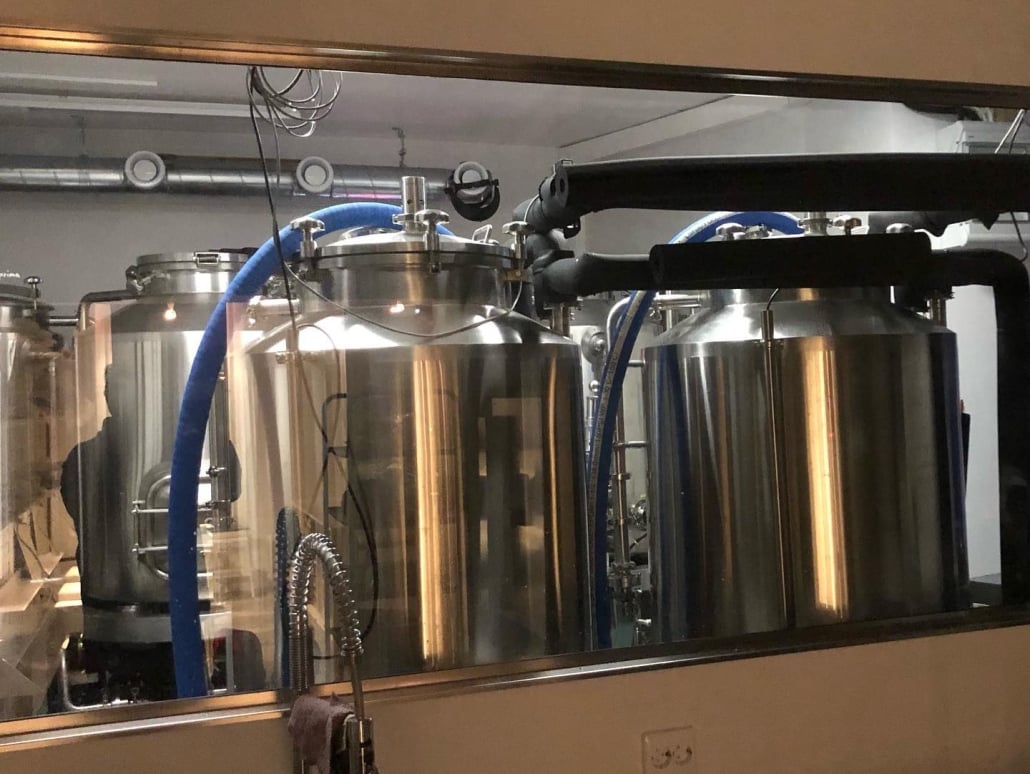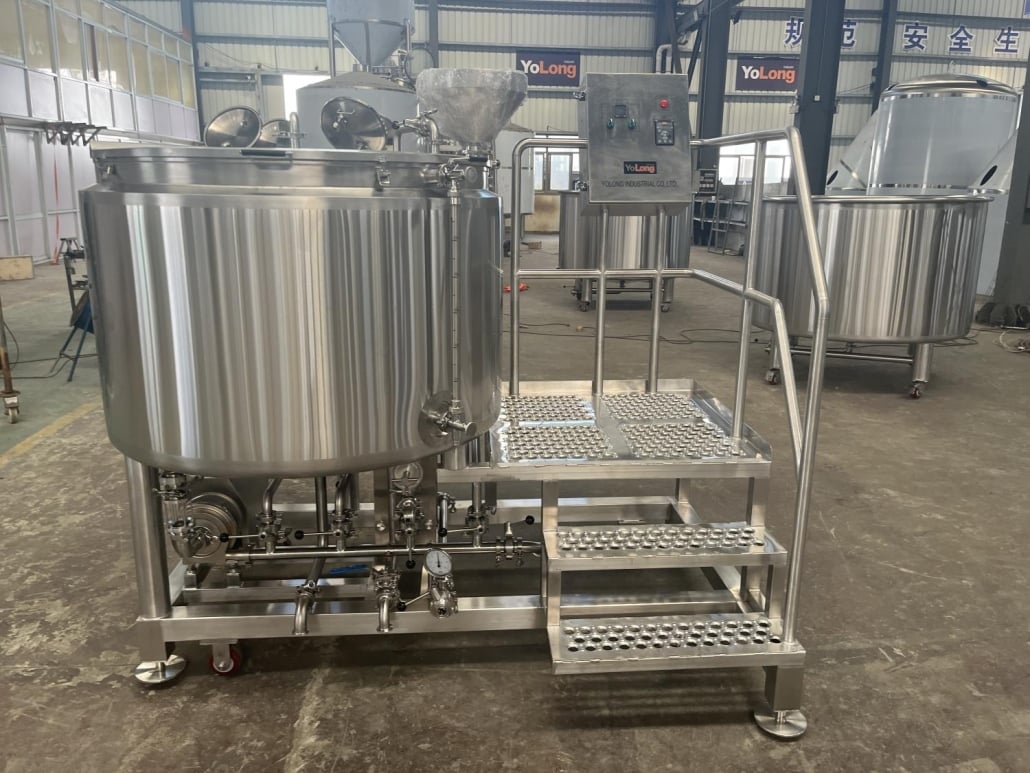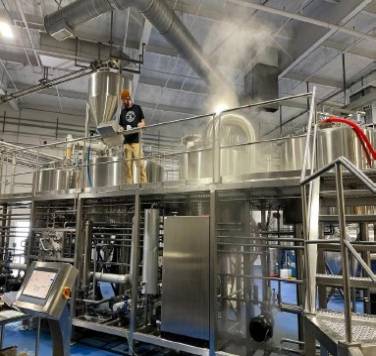The Ultimate Guide to Alcohol Brewing Equipment
Brewing your own alcohol at home is a rewarding and fascinating hobby that combines science, creativity, and a bit of craftsmanship. Whether you’re just starting out or looking to upgrade your setup, having the right equipment is crucial to making high-quality beverages. This guide covers everything you need to know about alcohol brewing equipment, from the basics to advanced tools, and how to choose the best options for your needs.
Overview of Alcohol Brewing Equipment
When it comes to brewing alcohol, the equipment you use can make a significant difference in the quality of your final product. Proper brewing equipment not only helps in creating better flavors but also ensures the brewing process is efficient and safe. This guide provides a detailed overview of essential brewing equipment, their functions, and tips on choosing the best ones to suit your brewing goals.
Essential Brewing Equipment
Brewing alcohol, whether beer, wine, or spirits, requires a variety of tools and equipment. Here are the key pieces you’ll need:
Brewing Kettle
A brewing kettle is where you’ll boil your wort. Stainless steel is the preferred material due to its durability and resistance to corrosion.
Fermenter
Fermenters come in different shapes and sizes. Plastic buckets, glass carboys, and stainless steel conical fermenters are common choices.
Airlock and Bung
These tools allow carbon dioxide to escape during fermentation while keeping contaminants out.
Hydrometer
A hydrometer measures the specific gravity of your brew, helping you determine alcohol content and track fermentation progress.
Thermometer
Maintaining the right temperature is crucial in brewing. A good thermometer ensures your wort and fermentation are at the ideal temperatures.
Siphoning Equipment
Siphoning tools help transfer your brew from one container to another without disturbing the sediment.
Sanitizing Solution
Keeping your equipment clean and sanitized is essential to avoid contamination.

Advanced Brewing Equipment
For those looking to take their brewing to the next level, here are some advanced tools to consider:
Mash Tun
A mash tun is used in all-grain brewing to convert starches to sugars. It usually includes a false bottom or manifold to separate the wort from the grain.
Grain Mill
A grain mill allows you to crush your grains just before brewing, ensuring freshness.
Wort Chiller
A wort chiller rapidly cools your wort post-boil, which is crucial for avoiding contamination and achieving the desired clarity.
Yeast Starter Kit
A yeast starter kit helps ensure you have a healthy yeast population ready to ferment your brew.
Temperature Controller
This device helps maintain precise temperature control during fermentation.
Types of Brewing Equipment
| Equipment Type | Description |
|---|---|
| Brewing Kettle | Large pot used to boil wort, typically made of stainless steel for durability and heat distribution. |
| Fermenter | Container where fermentation takes place; available in plastic, glass, and stainless steel. |
| Airlock and Bung | Devices that allow gases to escape during fermentation while keeping contaminants out. |
| Hydrometer | Instrument for measuring specific gravity, helping to track fermentation progress and alcohol content. |
| Thermometer | Tool to measure temperature accurately, ensuring optimal conditions during brewing and fermentation. |
| Siphoning Equipment | Tools used to transfer liquid between containers without disturbing the sediment. |
| Sanitizing Solution | Cleaning agents used to ensure all equipment is free from contaminants. |
| Mash Tun | Equipment for mashing grains, typically includes a false bottom for separating wort from grains. |
| Grain Mill | Device for crushing grains just before brewing to ensure freshness and optimal extraction of sugars. |
| Wort Chiller | Tool to cool wort quickly after boiling, reducing the risk of contamination and ensuring clarity. |
| Yeast Starter Kit | Kit to propagate a healthy yeast population for fermentation. |
| Temperature Controller | Device to maintain precise fermentation temperatures, critical for consistency and quality. |
The Brewing Process
Brewing alcohol involves several steps, each requiring specific equipment and careful attention to detail. Here’s a step-by-step look at the brewing process:
1. Brewing Preparation
Start by gathering and sanitizing all your equipment. Cleanliness is paramount to avoid any contamination that could spoil your brew.
2. Mashing
In all-grain brewing, mashing involves mixing crushed grains with hot water in a mash tun. This process converts starches in the grains into fermentable sugars. The temperature and duration of the mash affect the final flavor and body of the beer.
3. Boiling
After mashing, the liquid (now called wort) is boiled in the brewing kettle. During this stage, hops are often added to provide bitterness, flavor, and aroma. Boiling also sterilizes the wort and stops enzymatic activity from the mash.
4. Cooling
Once the boil is complete, the wort needs to be cooled rapidly to a temperature suitable for fermentation. This is where a wort chiller comes in handy.
5. Fermentation
The cooled wort is transferred to a fermenter, and yeast is added. The fermentation process converts sugars into alcohol and carbon dioxide. The fermenter should be kept at a stable temperature suitable for the yeast strain being used.
6. Conditioning
After primary fermentation, the beer may be transferred to a secondary fermenter for conditioning. This stage helps to clarify the beer and develop flavors further.
7. Packaging
Finally, the finished beer is packaged in bottles or kegs. For bottled beer, priming sugar is often added to carbonate the beer naturally.
Choosing the Right Equipment: Capacity, Space, and Customization
| Equipment | Capacity Options | Space Requirements | Design and Customization |
|---|---|---|---|
| Brewing Kettle | 5-10 gallons, 15-20 gallons | Requires stovetop or burner | Available with or without built-in thermometers, spigots. |
| Fermenter | 1-10 gallons, 15-30 gallons | Can be stored in cool, dark place | Customizable with spigots, temperature controllers. |
| Mash Tun | 5-15 gallons, 20-30 gallons | Requires space for additional equipment like false bottom | Can be insulated, come with sparge arms. |
| Grain Mill | Adjustable to desired crush size | Small countertop space | Hand-crank or motorized options available. |
| Wort Chiller | Immersion or counterflow types | Fits inside brewing kettle during use | Custom lengths and materials (copper, stainless steel). |
| Yeast Starter Kit | Typically 1-2 liters | Small countertop space | Includes flasks, stir plates for advanced setups. |
Suppliers and Price Range
| Supplier | Equipment Available | Price Range |
|---|---|---|
| MoreBeer | Full brewing kits, individual components | $50 – $2,000 |
| Northern Brewer | Starter kits, advanced equipment | $40 – $1,500 |
| Williams Brewing | Specialized brewing equipment | $30 – $1,800 |
| Amazon | Various brewing tools and kits | $20 – $1,000 |
| Midwest Supplies | Comprehensive brewing solutions | $45 – $2,200 |
Installation, Operation, and Maintenance
| Task | Details |
|---|---|
| Installation | Most equipment is easy to set up with basic instructions. For advanced systems, professional installation might be needed. |
| Operation | Follow manufacturer guidelines. Ensure proper temperature and sanitation practices. |
| Maintenance | Regular cleaning and sanitization. Check for wear and tear, replace parts as needed. |
How to Choose a Supplier
| Criteria | Details |
|---|---|
| Reputation | Look for reviews and ratings from other brewers. |
| Product Range | Ensure the supplier offers the equipment you need. |
| Customer Service | Responsive and knowledgeable support is crucial. |
| Price | Compare prices, but also consider shipping costs and warranties. |
| Quality | Opt for suppliers known for durable and reliable equipment. |
Advantages and Limitations of Alcohol Brewing Equipment
| Equipment | Advantages | Limitations |
|---|---|---|
| Brewing Kettle | Durable, good heat distribution | Can be expensive, large storage space needed |
| Fermenter | Various sizes, material options | Glass can be heavy and fragile, plastic may retain odors |
| Mash Tun | Customizable for efficiency | Larger models require more space |
| Grain Mill | Fresh crush for better flavor | Requires extra effort, can be costly |
| Wort Chiller | Rapid cooling, improves clarity | Additional cleaning required, can be bulky |
| Yeast Starter Kit | Ensures healthy fermentation | Extra preparation step, space for stir plate |

FAQs
| Question | Answer |
|---|---|
| What is the most important piece of brewing equipment? | The fermenter is crucial as it’s where fermentation takes place. Without it, you can’t make alcohol. |
| How often should brewing equipment be sanitized? | Before and after every use. Proper sanitation is essential to prevent contamination. |
| Can I brew beer without a wort chiller? | Yes, but cooling the wort quickly with a wort chiller helps prevent contamination and improves the quality of your beer. |
| Is all-grain brewing better than extract brewing? | All-grain brewing offers more control over flavor and body, but extract brewing is simpler and quicker, making it great for beginners. |
| How much does it cost to start home brewing? | Starter kits can range from $50 to $200, while advanced setups can cost several thousand dollars. |
| What size brewing kettle should I get? | It depends on your batch size. For 5-gallon batches, a 7.5 to 10-gallon kettle is recommended to prevent boil-overs. |
| How do I choose the right yeast for my brew? | It depends on the type of alcohol you’re brewing. Different strains of yeast are suited for different styles of beer, wine, or spirits. |
| What is the difference between primary and secondary fermentation? | Primary fermentation is the initial fermentation phase where most alcohol is produced. Secondary fermentation is optional and helps clarify and mature the beer. |
| Can I use plastic fermenters for brewing? | Yes, plastic fermenters are lightweight and affordable, but they can scratch and harbor bacteria if not properly cared for. |
| How long does the brewing process take? | It varies depending on the type of alcohol. Beer typically takes 4-6 weeks, wine can take several months, and spirits require additional distillation time. |
Conclusion
Brewing your own alcohol at home is a fun and fulfilling hobby that allows you to experiment with flavors and styles. Having the right equipment is key to ensuring your brewing process is smooth, efficient, and produces high-quality results. Whether you’re a beginner or an experienced brewer, investing in the proper tools can elevate your brewing game. Remember to research and choose equipment that fits your needs, space, and budget to make the most out of your brewing experience.
Share this entry
Interested in learning more about Brewing Systems including additional details and pricing information? Please use the form below to contact us!
YOLONG BREWERY EQUIPMENT FAQS
- Commercial Brewery / Craft Brewery / Microbrewery / Nanobrewery
- What is The Difference Between Craft Beer and Industrial Beer?
- The Bespoke Differences In Custom Brewing Systems
- Everything You Need to Know About Kettle Souring
- How to Choose Brewing Equipment for Your business?
- How To Choose The-Best Partner To Build Your Commercial Microbrewing System?
- Two Detection Sensors That You Need To Use In Your Brewhouse System
- Remote Control Applications in Brewing Equipment/How does it work?
- How To Clean Your Brand New Brewery Tanks?

